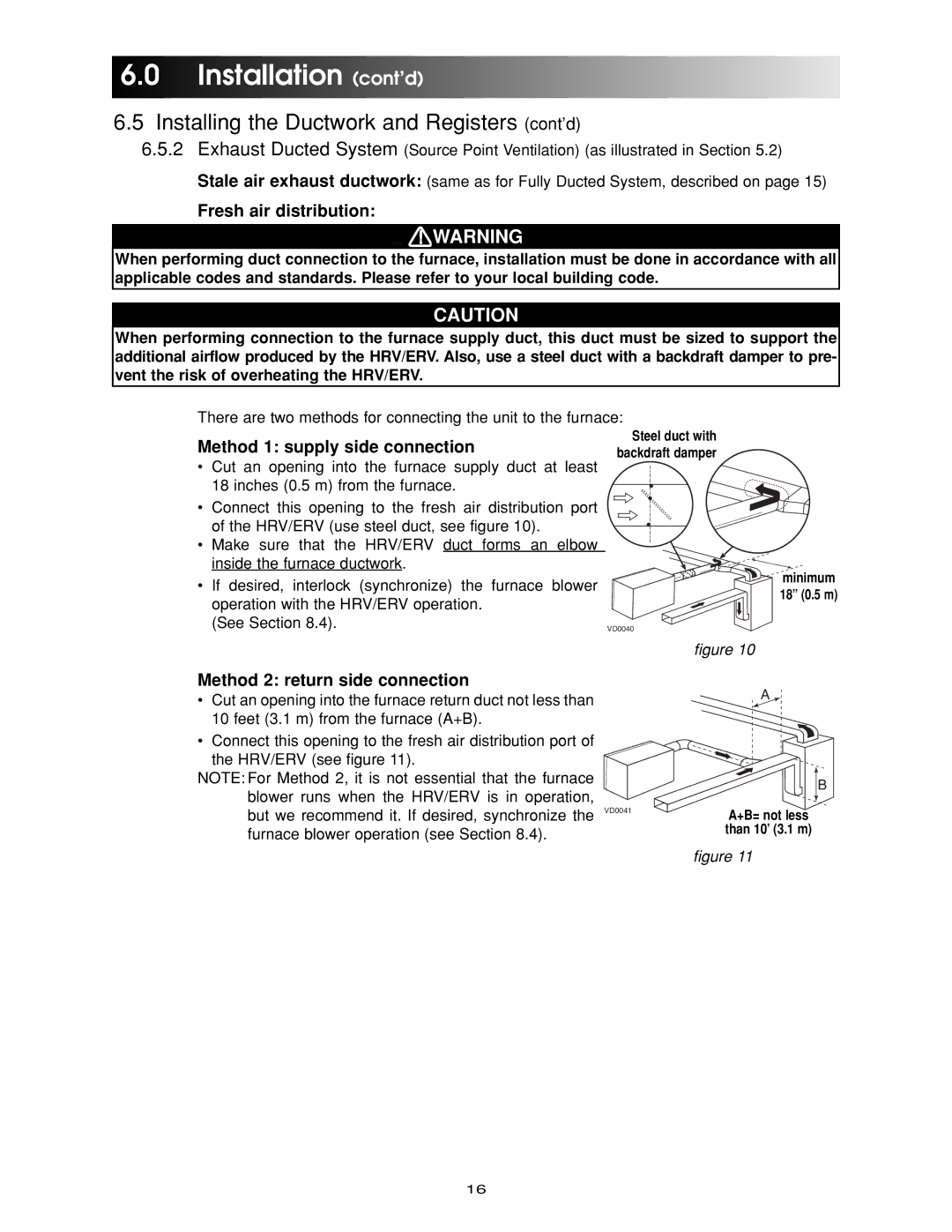ERV-150, HRV-150, ERV-210, HRV-210 specifications
The Maytag HRV-210, ERV-210, HRV-150, and ERV-150 are advanced heat recovery and energy recovery ventilators designed to enhance indoor air quality while promoting energy efficiency in residential settings. Each model comes packed with features tailored to balance ventilation and energy conservation, making them suitable for a variety of home environments.The HRV-210 and HRV-150 are heat recovery ventilators that excel in transferring heat from outgoing stale air to incoming fresh air. This process effectively maintains comfortable indoor temperatures, recovering up to 70% of the heat energy, which can lead to significant energy savings during colder months. Both models boast an airflow capacity of up to 210 CFM and 150 CFM, respectively, ensuring effective ventilation for medium to large-sized homes.
On the other hand, the ERV-210 and ERV-150 embody energy recovery technology that captures not only heat but also moisture content from the air. This is particularly beneficial in humid climates where maintaining humidity levels is crucial for comfort and health. With similar airflow capacities as the HRV models, these ERVs help regulate humidity levels, preventing the growth of mold and improving indoor air quality.
All four models are equipped with energy-efficient motors designed for quiet operation, ensuring that users experience minimal noise disruption while enjoying fresh air. The inclusion of user-friendly controls and adjustable settings allows homeowners to customize their ventilation strategy according to seasonal changes or personal preferences.
Another important characteristic of the Maytag ventilators is their durable build and ease of installation. With a design that promotes straightforward maintenance, the filters can be easily accessed and cleaned or replaced, extending the life of the unit and maintaining optimal performance over time.
In addition to their functional benefits, all models adhere to industry standards for energy efficiency, contributing to sustainable living practices. The Maytag HRV-210, ERV-210, HRV-150, and ERV-150 are comprehensive solutions for homeowners looking to enhance indoor air quality while optimizing energy consumption, making them a smart investment for modern living. Each model combines innovative technologies with practical features, making them a standout choice in the realm of home ventilation systems.

